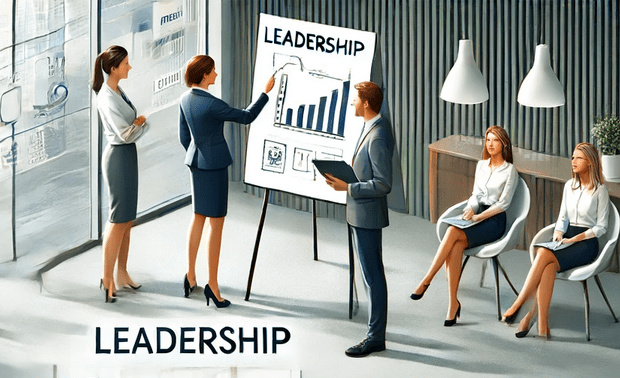Mastering Strategic Thinking in Communications:
A Guide for Job Seekers and Enterprise Leaders
In the ever-evolving landscape of business and professional environments, the ability to think strategically is a vital skill that can set individuals and organizations apart. Strategic thinking, particularly within the context of communication, is crucial for effective leadership, long-term planning, and organizational success. Whether you are a job seeker aiming to enhance your career or an enterprise leader seeking to build a competent team, understanding and cultivating this skill can significantly impact your trajectory.
Definition and Importance
Strategic thinking involves the ability to see the broader context, understand how different components interact, and plan actions to achieve long-term goals. Within communication, it means articulating a clear vision and aligning others with that vision. This skill enables individuals to plan effectively, anticipate future challenges and opportunities, and drive organizational success.
The Role of Strategic Thinking in Communication
Effective communication is not just about conveying information; it’s about influencing, inspiring, and aligning people with a shared vision. Strategic thinking enhances this by ensuring that the messages are not only clear but also aligned with long-term goals and organizational values. This alignment is essential for achieving sustained success and fostering a cohesive work environment.
Key Components of Strategic Thinking in Communication
Vision Development
Strategic thinking begins with forming a clear and compelling vision for the future. Communicating this vision requires clarity, inspiration, and alignment with organizational values. A well-articulated vision acts as a guiding star, helping individuals and teams understand their roles and contributions towards achieving the overarching goals.
Analysis and Synthesis
This component includes the ability to analyze current situations, synthesize information from various sources, and communicate insights that lead to effective strategies. It involves critical thinking and the ability to distill complex information into understandable and actionable insights.
Planning and Execution
Strategic thinking involves developing plans to reach long-term objectives and communicating these plans effectively. It requires meticulous planning, setting clear milestones, and ensuring that everyone involved understands their responsibilities and the overall strategy.
Adaptability
In a rapidly changing environment, the ability to adapt is crucial. Understanding when and how to make strategic changes and communicating those shifts effectively is essential. This adaptability ensures that strategies remain relevant and can respond to new challenges and opportunities.
Collaboration
Strategic thinking within a team context involves listening, sharing ideas, and working together to formulate strategies. Effective collaboration enhances the quality of strategic plans and ensures that diverse perspectives are considered, leading to more robust and innovative solutions.
Applications in Various Fields
Strategic thinking skills are applicable across various sectors, including business, healthcare, education, and government. These skills enable leaders to guide their organizations toward success by making informed decisions that align with long-term objectives. For instance:
- Business: Strategic thinking helps in market analysis, product development, and long-term growth planning.
- Healthcare: It aids in improving patient care, optimizing resource allocation, and enhancing healthcare delivery systems.
- Education: Strategic thinking supports curriculum development, educational reform, and institutional growth.
- Government: It assists in policy formulation, public administration, and effective governance.
Development and Enhancement
Practice and Exposure
Developing strategic thinking skills requires practice and exposure to complex problems. Engaging in challenging projects, taking on leadership roles, and participating in strategic planning sessions can enhance this skill.
Mentorship
Learning from experienced mentors who exhibit strong strategic thinking can provide valuable insights and guidance. Mentors can offer real-world examples, share their thought processes, and provide feedback on your strategic plans.
Continuous Learning
Staying updated with industry trends, advancements in strategic planning methodologies, and new communication tools is essential. Continuous learning through courses, workshops, and professional development programs can keep your skills sharp.
Clear Communication
Effective communication complements strategic thinking by ensuring that strategies are understood and embraced by all stakeholders. This involves not only conveying the plan but also listening to feedback, addressing concerns, and fostering a collaborative environment.
Challenges and Solutions
Resistance to Change
One of the significant challenges in strategic thinking is resistance to change. Overcoming this requires clear and persuasive communication, demonstrating the benefits of the proposed changes, and involving stakeholders in the planning process.
Lack of Alignment
Ensuring that all team members are aligned with the strategic vision can be challenging. Regular meetings, transparent communication, and involving the team in strategic discussions can enhance alignment and commitment.
Foreseeing Future Trends
Predicting future trends and adapting strategies accordingly is a complex task. Utilizing market research, data analytics, and staying informed about industry developments can help in making more accurate predictions.
Relevance to Career Growth
Individuals with strong strategic thinking and communication abilities are often seen as potential leaders and are more likely to progress within their careers. These skills are highly valued as they demonstrate the ability to plan for the future, make informed decisions, and lead teams effectively. Employers seek candidates who can not only envision the future but also communicate that vision and drive the organization towards it.
Conclusion
Strategic thinking is not just about planning for the future; it’s about understanding the broader context, recognizing opportunities and threats, and making decisions that align with long-term objectives. When paired with effective communication, strategic thinking becomes a powerful tool for inspiring teams, aligning efforts, and driving success.
In an increasingly complex and fast-paced world, the ability to think strategically and communicate that thinking effectively is a prized skill. For students and professionals alike, focusing on developing this ability can lead to more meaningful contributions, greater influence, and more satisfying career trajectories.
Curate Partners: Your Solution for Specialized Talent
At Curate Partners, we understand the critical role that strategic thinking and communication play in today’s business landscape. Our consulting services are designed to help you find the specialized talent you need to drive your organization forward. We provide a comprehensive suite of services, including:
Talent Acquisition
We help you identify and recruit top strategic thinkers and communicators who align with your company’s vision and goals. Our rigorous selection process ensures that you get the best fit for your organizational needs.
Skill Development
Our training programs and workshops are designed to enhance the strategic thinking and communication skills of your existing team. By keeping your team at the forefront of industry trends and best practices, we help you maintain a competitive edge.
Strategy Formulation
We work with you to develop effective strategies that align with your long-term objectives. Our consultants bring a wealth of experience and insights to help you navigate complex challenges and seize new opportunities.
Performance Analytics
We provide detailed analytics and performance measurement services to help you track the success of your strategies and make informed decisions. Our data-driven approach ensures that your strategies are optimized for maximum impact.
Change Management
Our experts assist in managing organizational changes, ensuring smooth transitions and effective communication throughout the process. By addressing resistance and fostering a collaborative environment, we help you implement changes successfully.












